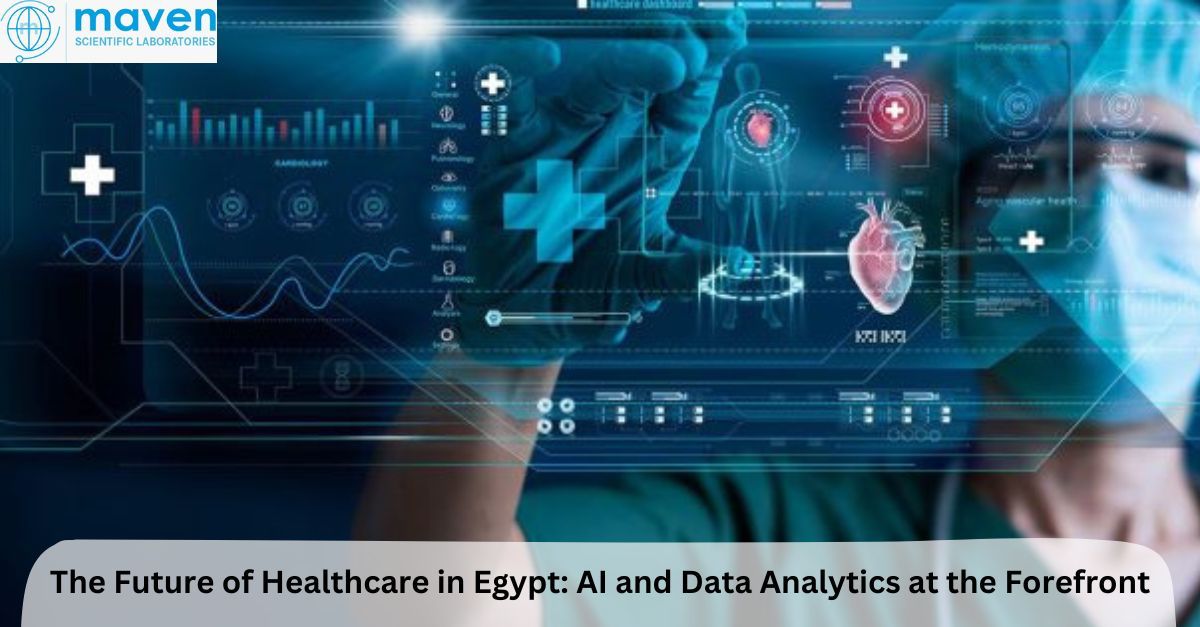
The Future Of Healthcare In Egypt: AI And Data Analytics At The Forefront
Egypt, celebrated for its rich history and growing economy, is emerging as a technological hub in Africa. Among the various industries benefiting from this technological progress, healthcare stands out as a key sector where Artificial Intelligence (AI) and Data Analytics are driving transformative change. Despite challenges, the potential of these technologies to reshape Egypt’s healthcare system is immense.
Understanding Egypt’s Healthcare System
Egypt’s healthcare landscape is a mix of public and private sectors, overseen by the Ministry of Health and Population (MoHP). Public hospitals and clinics provide essential services, while private facilities ease the burden on the public system. However, the sector faces significant challenges:
- Resource Inequalities: Limited healthcare facilities and professionals in rural areas.
- Financial Constraints: Insufficient funding for upgrading facilities and training professionals.
- Rapid Population Growth: Increased demand for healthcare services.
- Chronic Disease Burden: Rising cases of diabetes, hypertension, and other illnesses.
- Workforce Shortages: Lack of specialists, particularly in underserved regions.
These disparities in access to quality care call for innovative solutions like AI and Data Analytics to bridge gaps and ensure equitable healthcare.
The Role of AI in Transforming Egypt’s Healthcare
Artificial Intelligence, the simulation of human cognitive abilities by machines, offers multiple applications in healthcare. By processing vast amounts of data and identifying patterns, AI is revolutionizing medical research and patient care.
1. Diagnostics and Personalized Care
AI can analyse medical images such as X-rays and MRIs with remarkable precision, enabling early disease detection. Furthermore, AI-driven systems create personalized treatment plans tailored to individual patient needs, improving outcomes.
2. Predictive Healthcare
By analysing patient histories and genetic data, AI can predict health risks, shifting healthcare from reactive to preventive, and reducing the burden of chronic diseases.
3. Drug Discovery and Development
AI accelerates drug discovery by analysing databases of compounds and clinical trial results, significantly reducing the time and cost of developing new treatments.
4. Telemedicine and Remote Care
AI-powered platforms facilitate remote consultations and monitor chronic conditions, expanding healthcare access to rural and underserved populations.
5. Administrative Efficiency
AI optimizes hospital workflows by automating administrative tasks, streamlining resource allocation, and minimizing medical errors.
How Data Analytics Complements AI
Data Analytics enhances healthcare by managing vast datasets effectively. It supports AI in:
- Monitoring Disease Outbreaks: Predicting epidemics through real-time data analysis.
- Informing Policymakers: Enabling data-driven decisions for resource allocation and public health planning.
- Advancing Research: Identifying trends and potential breakthroughs to drive innovation.
Together, AI and Data Analytics deliver actionable insights to improve patient care and operational efficiency.
Challenges in Implementing AI in Egypt’s Healthcare
While AI holds great promise, its implementation in Egypt faces several obstacles:
1. High Implementation Costs
Significant investments in infrastructure, software, and training are required for AI systems.
2. Data Privacy and Security
Protecting sensitive patient information demands robust encryption and access control measures.
3. Data Quality Issues
Incomplete or biased data can lead to inaccurate predictions, endangering patient safety.
4. Ethical Concerns
Transparency, algorithm biases, and patient consent must be addressed with stringent ethical guidelines.
5. Workforce Readiness
Healthcare professionals, especially in rural areas, need training to effectively use AI tools.
6. Resistance to Change
Some professionals may resist adopting AI due to unfamiliarity or concerns about its impact on traditional practices.
Prospects for AI in Egypt’s Healthcare
The integration of AI and Data Analytics promises to create a more efficient and patient-centred healthcare system in Egypt. Key areas of focus include:
- Upgrading healthcare infrastructure to support advanced technologies.
- Standardizing care across public and private providers.
- Training healthcare professionals to utilize AI tools effectively.
- Addressing ethical concerns and safeguarding data privacy.
Egypt’s commitment to AI is evident in initiatives like the AI research programs and the establishment of its first AI faculty at Kafr El Sheikh University. These efforts, coupled with collaboration among policymakers, healthcare providers, and tech experts, will be crucial for sustainable implementation.
Conclusion
AI and Data Analytics are poised to revolutionize Egypt’s healthcare system, addressing long-standing challenges and improving patient outcomes. From enhancing diagnostics and personalizing treatments to optimizing resources and advancing research, these technologies are paving the way for an equitable and efficient healthcare landscape.
As Egypt continues its journey to become Africa’s technological hub, the responsible adoption of AI and Data Analytics will not only transform its healthcare system but also serve as a model for other nations to follow. Collaborative efforts and strategic investments will ensure a healthier future for all Egyptians.







